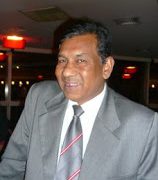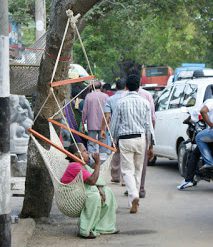This article is published in today’s The Star, the leading English daily newspaper in Malaysia
You’d be surprised what can be done with things that you would usually throw away without a second thought.By NILA TANZIL ENTERING a bookstore in South Jakarta, my eye is caught by a burst of colour in a corner. When I take a closer look, I discover funky looking makeup pouches, pencil cases, book covers, passport holders and laptop and sling bags – all made out of the packaging of well known brands of household products! I can’t help but smile as I recognise the packaging from my detergent on a pencil case…. There’s another reason to smile over these products that make use of discarded packaging: Currently, Jakarta generates approximately 28,000cu m of trash a day; the World Bank estimates that this will almost double, to approximately 50,000cu m a day, by 2010 (Kompas, Sept 16, 2006). This city – like most large cities today – desperately needs to reduce the amount of trash that ends up in its landfills.
 |
|
The XSProject Foundation in Jakarta help train economically disadvantaged women to generate income by training them to make unique products from discarded plastic packaging.
|
Which is why I’m delighted to meet the people at the XSProject Foundation, producer of those ingenious products. Founder, artist and environmentalist Ann Wiser enthusiastically explains the four-year-old foundation’s ideas. The first idea is to reduce the volume of non-recyclable plastic trash in Jakarta by re-using it. The foundation buys waste from the city’s trash pickers to stop it from ending up in landfills. Says the foundation’s daily operations manager, Yuniar Wulandari (aka Uni), “There are 80,000 tonnes of flexible plastic packaging manufactured each year in Indonesia. The average use of a single-use drink container made from this material is only four seconds. After that, it may sit in a landfill forever.” Most people do not know that this type of plastic is not recyclable, so it doesn’t have a market value – no one is interested in buying and re-using it so it will just end up in the dump. And manufacturers still use it for their packaging because it is cheaper. As a result, the amount of non-biodegradable plastic trash in the city’s dumps is increasing.
 |
|
Not bad for products made from trash! And they’re unique, too.
|
Another of the foundation’s ideas and a major part of its mission is to reduce poverty. Which is why it buys that waste from the city’s trash pickers at above the market price and then trains women from lower income groups to produce those funky products from it. For this activity, XSProject collaborates with a small NGO, Yayasan Kampung Kids, which provides training on how to make high quality handmade products, sewing techniques as well as designing patterns. Another part of the foundation’s mission is to raise awareness about environmental issues, especially among children. It works with several schools, from the elementary to junior high school levels, on this. Says Uni, “We start by giving them a shock therapy: showing a video of the environmental damage caused by trash.” They then share information on where the plastic trash comes from, what the kids can do to reduce its volume and how to manage waste by sorting it into different types – glass, plastic, metal, paper, etc – that can be recycled or re-used. The foundation’s project manager in charge of raising awareness in schools, Adit, then explains that, “We show them what can be made out of the non-biodegradable trash. Then we try to involve them by asking them to bring their own packaging wastes to the school. We provide several trash bins in each school. Students can throw the plastic waste from home into the XSProject trash bin.
 |
|
Sorting through discarded plastic packaging. If the foundation did not find a use for it, all that would end up in the city’s landfills.
|
“The children get excited when they see XSProject’s products. They feel involved in the whole project and they are proud to use pencil cases or bags that are made of the trash that they bring to the school,” Adit says enthusiastically. Adds Uni, “We want to make people look good and feel good at the same time when using our products. All profits from the sales go to the foundation to fund our programmes to increase the standard of living of the disadvantaged as well as to raise awareness on reducing plastic trash in the city.” It’s nice to know we can look cool while doing some good with these socially responsible products.
To order XSProject Foundation’s products or for more information, go to xsprojectgroup.com or e-mail info@xsprojectgroup.com. In Jakarta, the foundation’s products can be found in Aksara Bookstore, Kemang, and several art galleries in South Jakarta.





